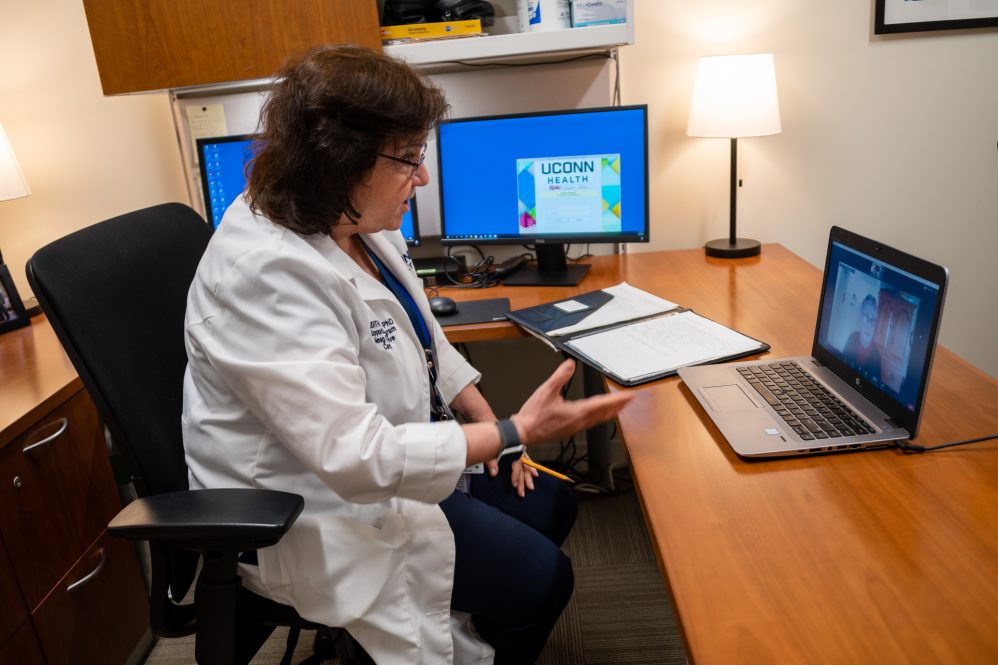Sandra Theriault was diligent in scheduling her mammograms and in 2017 when her mammogram showed clear she had a feeling that she should follow the instructions on the form for those with a history of dense tissue to have an ultrasound.
Today she is grateful for that “feeling” as the ultrasound showed that she had early-stage breast cancer.
She had a lumpectomy to remove the tumor followed by chemotherapy and radiation.
“I wanted all my care in one place and chose UConn Health,” says Theirault.
At the UConn Health Carole and Ray Neag Comprehensive Cancer Center she was a patient of Dr. Susan Tannenbaum Chief, Division of Hematology/Oncology, and Dr. Robert Dowsett, chief of UConn’s Division of Radiation Oncology for her treatments.
“I am appreciative of everyone at UConn Health,” says Theriault. “Cancer is a scary diagnosis and when you get it, your mind starts spinning ‘what will I do?’ ‘How do I prepare my family?’ and thoughts of a bad ending”
During her cancer treatments, Theriault lost two cousins to breast cancer, a sister to uterine cancer, and a brother-in-law to bladder cancer. She became overwhelmed with the loss and her cancer treatment.
“I was having panic attacks and anxiety and I just couldn’t seem to quiet my brain,” says Theriault.
She was referred to Judith Cooney PhD, health psychologist and associate professor of Psychiatry at the Cancer Center.
Cooney practices health psychology, a specialty area that applies psychological principles and evidence-based treatments to help manage the psychosocial impact of medical and health problems and to change health behaviors.
This was Theriault’s first experience with psychotherapy. Her coping mechanism was food, most notably chocolate until Cooney provided her with new coping mechanisms.
She keeps her sneakers by the door and walks every day. She also listens to the Benedictine Monks chanting on a DVD which reminds her of church and calms her.
“It’s important to get outside, I walk a mile or two and when I get home I am motivated to continue to practice healthy habits,” says Theriault.
Cancer survivorship is a good time to adopt healthy behaviors to help prevent cancer recurrence and promote general health. Health psychology helps patients modify their behaviors to focus on wellness and health. Cooney provides a range of health promotion treatments for cancer survivors, including wellness programs (incorporating stress management, movement, and healthy eating), behavioral weight management, and nicotine and tobacco treatment.
Theriault’s cancer treatments ended in 2019 and she still sees Dr. Cooney to help her cope and transition to survivorship.
“Dr. Cooney helps you focus on living in the moment rather than worrying about the future or survivorship,” says Theriault.
Once she came to terms that she was going to survive, she appreciated everything and every day.
While reoccurrence is always in the back of her mind. She doesn’t dwell on it.
“It’s important to treat yourself well and do things that make you feel good,” says Theriault.
Watch the video below to learn more about Sandra and the Cancer Survivorship Program at UConn Health.



